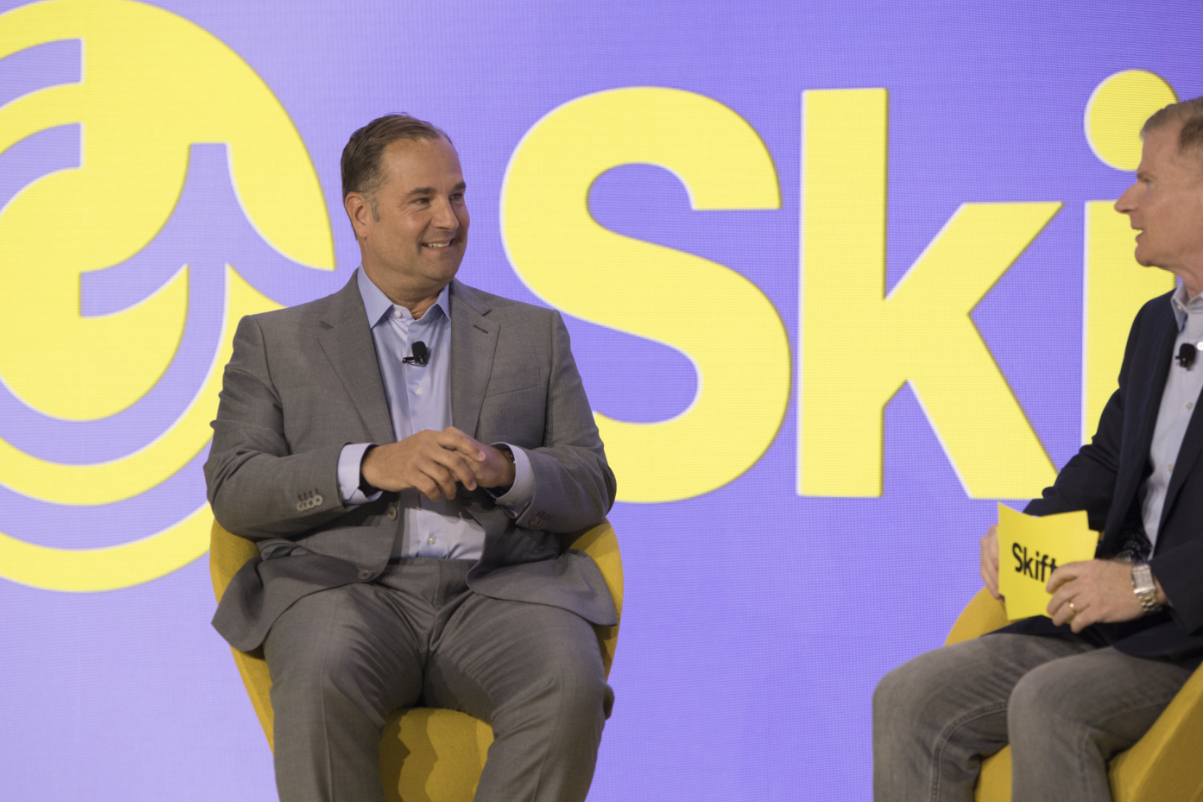U.S. Will Drop Vaccine Requirement for International Flyers

Skift Take

Skift Daily Briefing Podcast
Listen to the day’s top travel stories in under four minutes every weekday.Good morning from Skift. It’s Wednesday, May 3. Here’s what you need to know about the business of travel today.
Listen Now
🎧 Subscribe
Apple Podcasts | Spotify | Overcast | Google Podcasts
Episode Notes
International travelers will soon no longer need proof of vaccination to enter the U.S. The White House announced this week the vaccine requirement for inbound international flyers will end on May 11, writes Global Tourism Reporter Dawit Habtemariam.
The Biden administration cited the decrease in Covid cases and hospitalizations as a reason for its decision. Habtemariam notes the White House had implemented the vaccine requirements to help slow the spread of the virus. U.S. travel authorities applauded the government’s removal of the vaccine mandate, a move that could lead to an increase in international visitors.
Next, VisitBritain is the latest tourism board to jump on the artificial intelligence bandwagon. The organization has created a game using AI voice technology for a campaign targeting American tourists, reports Contributor Samantha Shankman.
VisitBritain is using the rapidly emerging technology to play around with regional UK accents as part of its campaign. Prospective visitors are invited to try those accents, which AI scores, and share the results on social media. A VisitBritain executive said the organization created AI speech technology that can judge Americans’ impressions of UK accents.
Shankman writes VisitBritain believes the content can push test takers toward booking travel to the UK. Skift examined how generative AI — technology that includes the creation of images, audio and video — could fundamentally alter travel marketing in a 2023 Megatrend.
We end today with a look at Qantas Airways new CEO, Vanessa Hudson. She faces the difficult task of living up to the legacy established by her predecessor, reports Edward Russell, editor of Airline Weekly, a Skift publication.
Hudson, who will take over from longtime CEO Alan Joyce in November, will inherit an airline that has emerged stronger out of the pandemic. Russell writes Joyce turned Qantas into a profitable aviation powerhouse during his 15 years at the helm. The company posted a more than $1 billion operating profit during the first six months of its 2023 fiscal year. Qantas expects a profit for the full fiscal year ending in June.
Russell adds that Hudson, Qantas’ current chief financial officer, will need to manage the airline’s international partnerships. Its joint venture with American Airlines is one of them, which Russell writes grew in importance during the pandemic.





